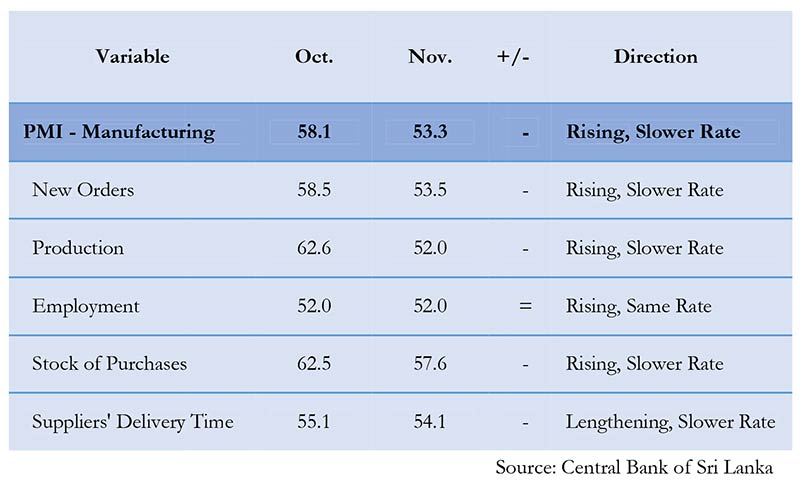Business
Experts explore what sets Sri Lanka apart as a tourist destination

Conservation Tourism Webinar
The Conservation Tourism webinar series organised by Sri Lanka Tourism Alliance was held last month, to explore the topic of ‘Wildlife and Nature Conservation, as it applies to the Future Sustainability of Sri Lanka’s Tourism Industry’.
The webinar attracted a record number of virtual attendees and featured an eminent panel of speakers. The session was introduced by Co-Chair of the Sri Lanka Tourism Alliance, Malik J Fernando, and moderated by Niranga Gunaratna, Director of Communications at Shangri-La Colombo & Shangri-La Hambantota.
The speakers touched on important elements such as what sets Sri Lanka apart as a tourist destination and the economic value of Sri Lanka’s nature and wildlife to the visitor economy. It was clearly established that our biodiversity was the main attraction for tourists. The webinar went on to discuss major challenges faced by Sri Lanka’s nature and wildlife and the consequences to local tourism. The speakers expounded how the tourism industry could bring about conservation outcomes, that would also be beneficial to their own bottom line.
Srilal Miththapala, Past President of The Hotels Association of Sri Lanka (THASL) emphasized that wildlife is a critical component of Sri Lanka’s tourism industry and that in 2018, out of the 2.2 million tourists who visited Sri Lanka, 50% had visited Sri Lanka’s wildlife parks. He also spoke of how he tried to “awaken” people to the value of Sri Lanka’s wildlife by assigning economic value to this natural resource, especially for wild elephants. Sadly, Sri Lanka whilst being one of the best countries to see them in the wild, is also the country with the worst human-elephant conflict (HEC) in the world. On average over 300 elephants are killed in Sri Lanka annually due to HEC.
Toby Sinclair, Director of &Beyond Asia has over 40 years’ experience in Sri Lanka and with his international lens on tourism, he stated how a couple of decades ago Sri Lanka was certainly the best place to see leopards and elephants in the wild but because the country has chosen “quantity over quality”, the quality of those experiences has declined over time. “Driving in Yala has become like driving down Galle Road at 5 o’clock in the evening,” he said. Mismanagement of our wildlife resources, lack of training for wildlife park guides and jeep drivers and not improving the standard of the visitor experience are keeping Sri Lanka from becoming a successful wildlife tourism destination. “The potential of Sri Lanka is enormous. I am optimistic but I am very concerned that we are going to kill the golden-goose”.
Dr Sumith Pilapitiya, Former Director General of Sri Lanka’s Department of Wildlife Conservation (DWC) highlighted that “Sri Lanka has the ‘potential’ to be the best wildlife tourism destination outside Africa”, however despite being blessed with every natural resource, it is unlikely that we will reach that potential, as the country lacks strategic direction. Rather we are destroying that potential by destroying our nature and wildlife. He went on to say that the private tourism sector should be doing much more, to work with the government in order to strategically develop the sector by protecting its natural resources, rather than sit complacent while they focus on reaping the benefits of Sri Lanka’s unique biodiversity today. “If Sri Lanka is to reach its potential as the best wildlife tourism destination outside of Africa, the private tourism sector has to play a significant role to make that happen”.
Business
Manufacturing and Services expand in Nov. 2024
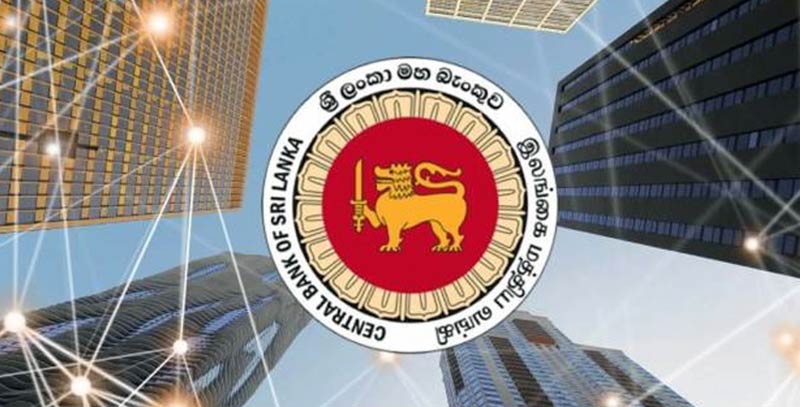
Sri Lanka Purchasing Managers’ Index for Manufacturing (PMI – Manufacturing) recorded an index value of 53.3 in November 2024. This indicates an expansion in manufacturing activities on a month-on-month basis, with positive contributions from all the sub-indices.
New Orders sub-index expanded during the month, primarily driven by the textile & wearing apparel sector. Further, the expansion in Production sub-index was mainly attributable to the food & beverages sector. Moreover, Employment and Stock of Purchases sub-indices remained expanded during the month, aligning with the New Orders and Production sub-indices. Meanwhile, Suppliers’ Delivery Time remained lengthened during the month.
The outlook for manufacturing activities for the next three months remains positive. However, some manufacturers, especially in the food sector, are concerned about the limited supply of several key raw materials.
Sri Lanka Purchasing Managers’ Index for Services (PMI – Services) indicated a further expansion in services activities in November 2024 as reflected by the Business Activity Index, which recorded an index value of 60.5.
The expansion in Business Activities was driven by the improvements observed across most of the sectors. Accordingly, business activities in the financial services experienced a significant improvement amid increased lending activities. Further, business activities in accommodation, food and beverage also showed a considerable improvement due to the increase in tourist arrivals. Meanwhile, wholesale and retail trade business activities also increased ahead of the festive season, despite the adverse impact of unfavourable weather on sales.
New Businesses increased in November 2024, primarily due to considerable expansions in the financial services and accommodation, food and beverage activities.
Employment increased amid recruitments made to accommodate growing economic activities with increased tourist arrivals and festive season, whereas Backlogs of Work continued to decline in November 2024.
Expectations for Business Activities for the following three months continued to improve, at a higher rate, driven by the ongoing tourist season and the upcoming festive season.
Questionnaires are completed in the first half of the succeeding month. For each variable, respondents are asked to report an increase, decrease or no change compared with the previous month, and to provide reasons for any changes. The index compilation and interpretation of indices follow the survey methodology of S&P Global.
PMI – Manufacturing, which is considered as the headline index for Manufacturing, is a weighted average of New Orders, Output, Employment, Suppliers’ Delivery Time and Stocks of Purchases.
The Services Business Activity Index is the headline index for Services, which is referred to as the PMI – Services, as per the international best practices. The Services Business Activity Index is comparable to the Manufacturing Production Index.
The Index
PMI is calculated as a ‘Diffusion Index’, where it takes values between 0 and 100. PMI=50 – sector remained neutral on month-on-month basis PMI>50 – sector is generally expanding on month-on-month basis PMI<50 – sector is generally declining on month-on-month basis
Sample
The sampling frame was based on a list of large companies located in the Western province obtained from the EPF Department. Samples for Manufacturing and Services activities were selected based on the GDP sectoral share, with a target of 100 responses for each.
Definitions of Variables
Employment : Number of staff working for the organization Stock of purchases : Raw materials purchased and kept in a warehouse to be used for production Supplier Delivery Time : Time lag between order placement and delivery by the supplier Backlogs of Work : Uncompleted orders Other variables are self-explanatory.
(CBASL)
Business
Design in the Moment: Furniture by the Geoffrey Bawa Practice opens in Colombo
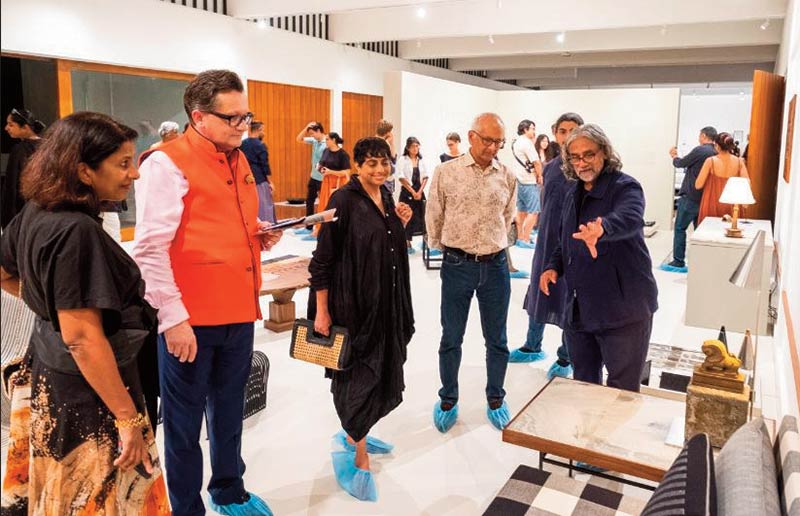
The late Sri Lankan architect Geoffrey Bawa (1919-2003) was known primarily for his architecture, but he also created a series of contemporary furniture designs throughout his five-decade practice. With regards to this custom built furniture, he was known to say “We did what was thought to be right in that moment.”
This “moment” is the culmination of political, economic, and social circumstances that shaped the Sri Lankan context within which Bawa worked: one of a closed economy, restricted imports, and a consequential reliance on locally-available materials. The Geoffrey Bawa practice produced a number of furniture designs as a result, namely lamps and chairs. Bawa and his associates worked with local craftspeople across disciplines and frequent collaborators to produce pieces embodying this innovative spirit, drawing inspiration from prevalent styles of the time.
An exhibition focusing on these designs and their role in the wider context of Bawa’s practice is now open in Colombo. Design in the Moment: Furniture by the Geoffrey Bawa Practice closely examines the histories and context of Bawa’s furniture designs and considers how they can be meaningful for contemporary use. This exhibition is a collaborative effort by the Geoffrey Bawa Trust and India-based furniture company Phantom Hands. Curated by architect and Chairperson of the Geoffrey Bawa Trust Channa Daswatte and Phantom Hands co-founder Aparna Rao, the exhibition interrogates the idea and process of reproduction through furniture designs, including the “Next-Door Café” Chair and the Saddle Chair. Phantom Hands’ Geoffrey Bawa Collection, a furniture collection offering re-editions of these designs and others from the architect’s practice, launched alongside the exhibition and will be available for purchase in 2025.
Design in the Moment: Furniture by the Geoffrey Bawa Practice will be on view at the newly-opened Geoffrey Bawa Space on 42/1 Horton Place, Colombo 07, between 13th December, 2024 and 31st May, 2025. The Geoffrey Bawa Space is open Wednesday through Sunday between 12 p.m. and 6:00 p.m. except major holidays. A series of curatorial tours and public programming will take place throughout the duration of the exhibition. More information is available on geoffreybawa.com and phantomhands.in.
Phantom Hands
Phantom Hands is a craft and design driven furniture maker based in Bangalore, India. Founded in 2014 by Aparna Rao and Deepak Srinath, their collections include re-editions of 20th century classics, as well as contemporary objects created in collaboration with acclaimed furniture and textile designers. Made by skilled artisans from traditional craft communities, Phantom Hands’ products are available globally via leading design galleries and furniture showrooms in Europe, North America, Asia and Australia.
Geoffrey Bawa Trust
The Geoffrey Bawa Trust is a non-profit organization with charitable status in Sri Lanka that was established in 1982 by the late architect, with the objectives of furthering the fields of Architecture, the Fine Arts and Ecological and Environmental Studies. Since the architect’s passing in 2003, the Trust has sustained year-round public programmes comprising lectures, educational tours, scholarships, residencies and exhibitions which engage broader discourse on the built environment and the arts in both Sri Lanka and overseas.
Business
ICMA Australia hosts 6th graduation ceremony honouring 225 newly Certified Management Accountants
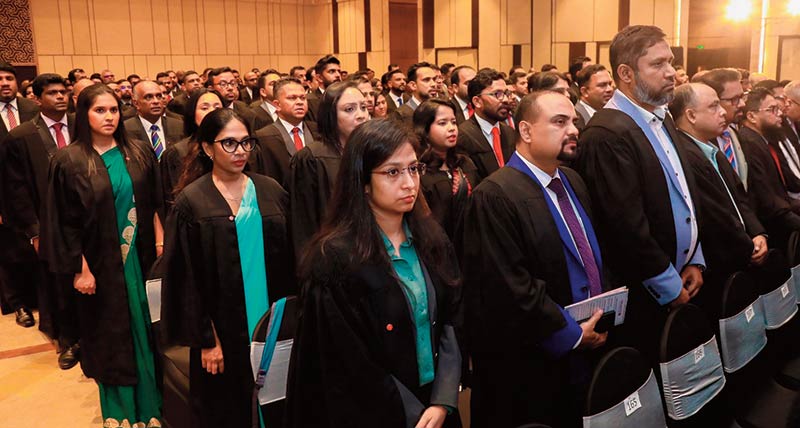
The Institute of Certified Management Accountants (ICMA) of Australia proudly celebrated the 6th Graduation Ceremony with 225 graduates receiving the prestigious Certified Management Accountant (Australia) designation.
Over 30 students from Bangladesh and India also received their degrees at the graduation ceremony. The ceremony took place at the Grand Ballroom, Hotel Galadari, Colombo, recently.
Professor Janek Ratnatunga, Global CEO, ICMA Australia, chaired the ceremony. The Australian High Commissioner to Sri Lanka and Maldives, Paul Stephens, attended as the Chief Guest, alongside Guest of Honour David Pine, New Zealand’s High Commissioner to Sri Lanka.
He stated, “Today marks an important milestone as we welcome 225 new Certified Management Accountants into our global community. The achievement of the new graduates reflects academic excellence and commitment to advancing the field of management accounting. The graduation of these professionals, including those from Bangladesh and India, demonstrates ICMA Australia’s expanding influence across Asia. In today’s dynamic business environment, the graduates are well-equipped to provide vital strategic financial leadership for corporates to navigate complex economic networks.”
At the ceremony, outstanding graduates were recognized with gold medals for their exceptional performance in the ICMA examinations. Furthermore, special appreciation plaques were presented to CMA (Australia) Executive Council Members for their dedicated service and continued support in strengthening ICMA Australia’s presence in Sri Lanka.
Additionally, three distinguished leaders from Sri Lanka’s banking and business sector were also inducted as Foundation Members of the Institute of Certified Management Accountants including J Durairatnam, Chairman, DFCC Bank PLC, Bingumal Thewarathanthri, CEO, Standard Chartered Bank and Nihal Jayawardene PC, Chairman, Hatton National Bank PLC
Established in 1996 in Australia, ICMA is a global accounting body dedicated to advancing management accounting expertise. With a growing presence across Asia-Pacific, the Middle East, and Africa, ICMA’s educational modules are recognized up to Level 9 by the New Zealand Qualification Agency (NZQA).
ICMA has established a strong presence in Sri Lanka since 1998, through a partnership with the Institute of Chartered Accountants of Sri Lanka. The Academy of Finance became its exclusive partner in 2006, making Sri Lanka the global hub for the Graduate Conversion Programme, under the leadership of Mr. Kapila Dodamgoda.
-

 Opinion6 days ago
Opinion6 days agoDegree is not a title!
-
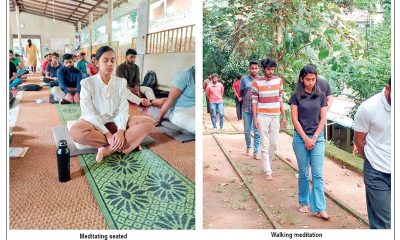
 Features7 days ago
Features7 days agoSpiritual Awakening of a Village
-
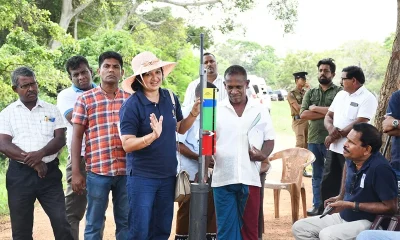
 News5 days ago
News5 days agoInnovative water management techniques revolutionising paddy cultivation in Lanka
-
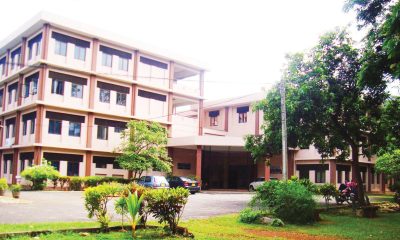
 Features7 days ago
Features7 days agoRevisiting the role of education in shaping shared futures
-
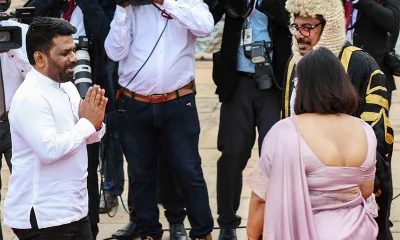
 Features4 days ago
Features4 days agoThe Degree Circus
-
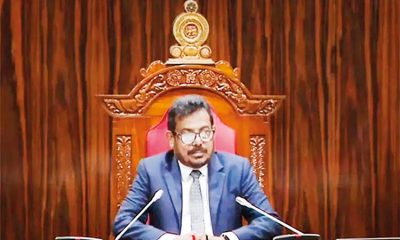
 Features7 days ago
Features7 days agoThe Silence of the Speaker and other matters
-

 Editorial6 days ago
Editorial6 days ago‘Compass’ under the microscope
-

 Editorial7 days ago
Editorial7 days agoPerks and privileges


